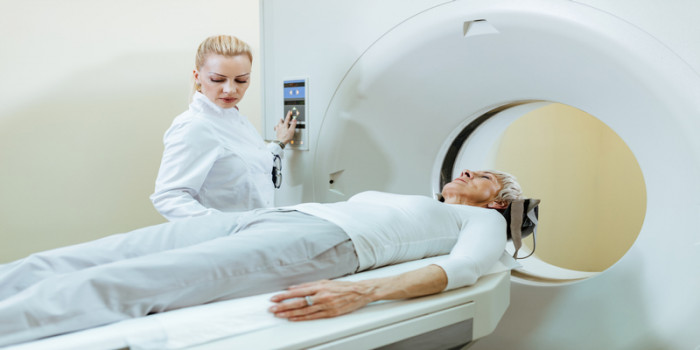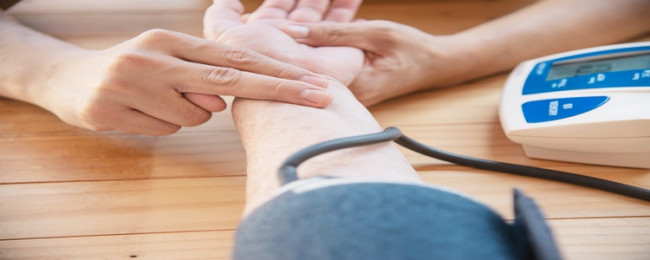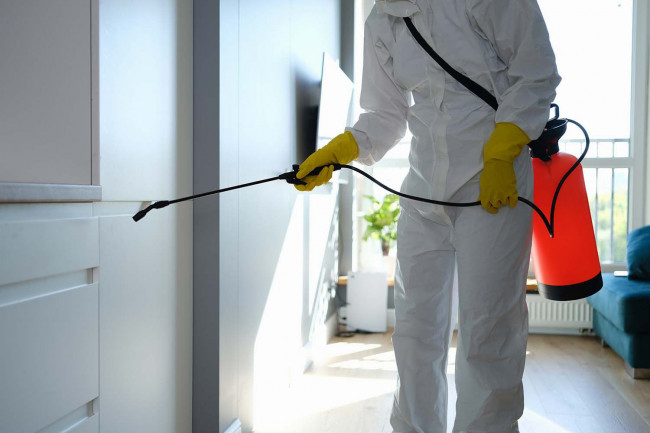
Cancer screening tests seek to detect cancer before symptoms appear, when it may be easier to treat successfully.
- An effective screening test detects cancer at an early stage.
- Reduces the likelihood that someone who is regularly screened will die from cancer.
- Has more potential benefits than risks (risks of screening tests include bleeding or other physical harm, false-positive or false-negative test results, and overdiagnosis—the diagnosis of cancers that would not have caused problems and would not have required treatment).
A Cancer screening test is testing for any kind of cancer when there are no obvious signs and symptoms. Here are some kinds of cancer screening tests -
1. Physical evaluations - Specific areas of the body are inspected for detecting any kind of abnormalities (example - breast examination for detecting breast cancer, rectal examination for prostate cancer, etc.).
2. Imaging tests – These are the tests that will produce images of organs inside the body, (x-rays, mammograms for breast cancer). - 3. Laboratory tests – These are tests that examine the blood, urine, and even other body fluids and tissues (faecal occult blood test for checking for colorectal cancer, Pap smear test for detecting cervical cancer).
4. People who are at high risk for a few cancers may be required to adhere to a different screening schedule, such as beginning at an earlier age or being screened more often. Those having any symptoms that can be related to cancer should consult their doctor right away.
The cancer screening tests that you need and how often a person has to be screened will depend on a number of factors, that include age, gender, individual and family health history as well as lifestyle habits, like consumption of alcohol and smoking. The cancer screening tests that are recommended for adults who are 50 years and older having average risk are -
- Screening for Breast cancer screening
- Screening for Cervical cancer until the age of 65 years
- Screening for Colorectal and Prostate cancer
- Examining for Oral cancer
- Testicular and skin cancer examinations
- Hepatitis B and C testing (these are linked to liver cancer)
If anyone has high risk factors for a few cancers, it is advisable to consult a doctor and find out the next course of action.
Benefits of a screening test for cancer:
Screening is one of the most important procedures for detecting cancer. Despite numerous advancements in the field of cancer treatment, some people are still unable to receive treatment due to financial constraints. However, this Cancer Screening Test is turning out to be an indication of universal health care rationing.
Do you want to know how much a full body cancer screening costs in India?
The full body cancer screening cost in India can be anywhere from INR 5000 and go up to 50000 INR. This cost will usually include the general urine and blood tests as well as any other particular tests that are performed for the detection of cancer.
What are the different kinds of cancer screening tests that are being done?
The doctor can conduct physical evaluations, certain imaging procedures, and even lab or genetic tests called cancer screening tests. Some of the popular cancer screening tests are given below-
1. Mammogram - It is an X-ray of the breast that is taken for the quick detection of breast cancer. Mammography at regular intervals might help in lessening the chances of a woman’s death from breast cancer.
2. Pap Smear Test - Doctor will collect the cells as well as mucus from a woman’s cervix and also its surrounding area. The sample is then sent for testing for any anomalies that have the potential to turn into cervical cancer. In some cases, doctors may also do an HPV test in combination with a Pap smear test in women to screen for the human papillomavirus (HPV).
3. Fecal Occult Blood Test - It is used to check for any blood in the stool, that can indicate any polyps or colon cancer.
4. PSA – A blood test that is performed on men who are at a high risk for prostate cancer and is often conducted along with a rectal exam.
5. Colonoscopy and Sigmoidoscopy – The cancer screening test is conducted with a thin tube having a camera at the end to look inside the colon of the patient. A colonoscopy will examine the whole colon, while a sigmoidoscopy will examine only the left side. These cancer screening tests will detect any polyps, which can later develop into colon cancer.
6. CT Scan Low-dose computed tomography or low-dose CT scan – Conducted for screening for lung cancer. An X-ray machine is used for scanning the body and providing images of the lungs.
Skin Exam - A doctor will go through a thorough skin evaluation of a person and look for any suspicious spots or changes in the skin.
Questions to ask your doctor about cancer screening
It can be difficult to determine whether you should have a cancer screening test, when and how frequently you should have it, and when you should stop having it. Asking your doctor the following questions can help you determine the best cancer screening plan for you.
- Are any cancer screening tests recommended for me? Which ones?
- How often should I have the test? At what age should I stop having it?
- What is the purpose of the test?
- Does the test require preparation and how do I do that?
- What happens during the test?
- Are there risks to having the test?
- How long does it take to get test results?
- How will you tell me about the test results? For example, email, online health portal, phone?
- If I do not get my test results, who should I contact? Is there a phone number can I call?
- What happens if the results are not normal?
Takeaway
Looking out for cancer cells or any other abnormalities that have the potential to become cancerous in people who are showing no signs and symptoms is called a cancer screening test. It has been seen that the screening tests are able to discover cancer early and even lessen the chance of death.











